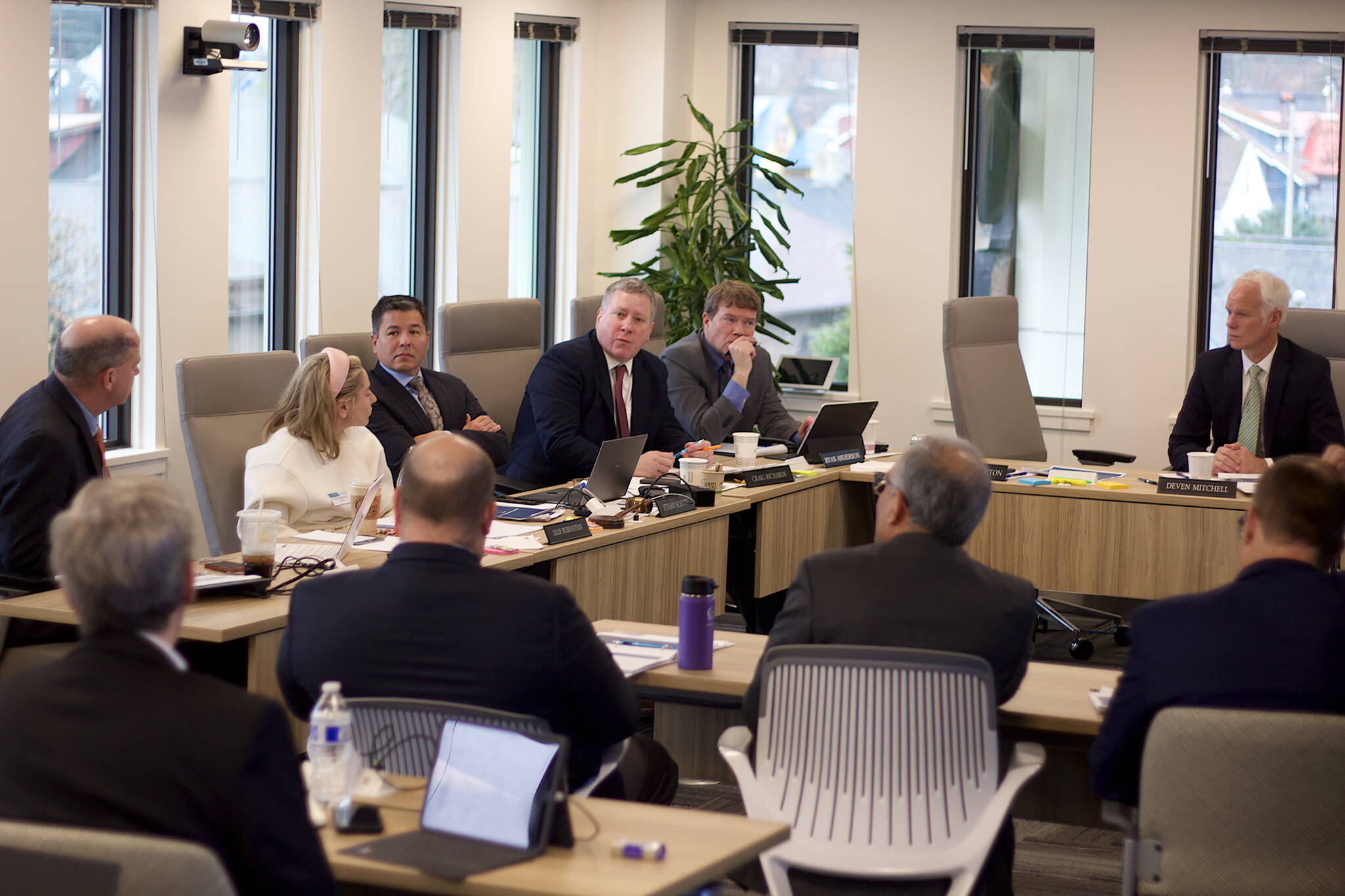A higher-risk, higher-reward proposal seeking to boost the $74 billion Alaska Permanent Fund to $100 billion by 2028 ultimately got a flat reception from the board of trustees after an occasionally bumpy meeting Monday, with advisors stating the strategy and market conditions for seeking the higher returns are ill-advised.
The board did not formally vote for or against the change, but indicated it is unlikely to receive approval when a new strategic plan is formally adopted in December.
The fund’s current earnings target is inflation as measured by the Consumer Price Index, plus 5%, which if met would result in the fund reaching $100 billion in 2031. The four-year plan discussed Monday at the Alaska Permanent Fund Corp.’s headquarters in Juneau would raise the target to inflation plus 7%.
Reaching the higher target would mean a 9.3% average annual return on investments, which would require measures such as borrowing money to make those investments and putting more money in higher-risk private equity accounts, according to fund advisors.
A “peer” chart listing six other public pension funds in the U.S. and a seventh in Canada showed only the latter — which operates under different parameters — met or exceeded the target for a CPI plus 7% return during a 10-year period. The Alaska Permanent Fund was second among the seven U.S. funds at 8.4%.
“I think the biggest takeaway for me from this is we’ve done pretty well without leverage,” said Kevin Dee, a strategic plan consultant with KMD Services & Consulting hired to advise the board of trustees, noting no single fund consistently was in the top spot.
Two other investment advisors suggested the trustees go in the opposite direction and set a target of CPI plus 4% given current U.S. market conditions.
“If you’re willing to really radically change the portfolio to an international perspective you’d probably get higher,” said Britt Harris, interim CEO of the Texas Permanent School Fund. “But for a U.S. (portfolio) something less than normal. So I’d be going down rather than up.”
Two members of the public offered testimony at the beginning of the meeting — one in writing, the other who said an opportunity for comment should also be allowed at the end of the meeting after participants had time to fully learn the issues involved and the board’s discussion about them.
“My take is if you’re trying to keep more than 5% above the CPI — and the CPI is already volatile — then you’re creating a more volatile fund,” said Rolland Trowbridge, a Nome resident testifying remotely via Zoom. “And so as a member of the public I would rather have a camel that will make it across the desert rather than a racehorse, and so that’s the mood I’m trying to convey as a member of the public and probably most people that you would meet. They’re not looking for the Alaska Permanent Fund to be something that is growing greatly, but something that’s stable and rock solid.”
Discussion about the proposal among trustees was contentious at the outset, with some board members accusing the media and “political blogs” of misrepresenting the proposal and/or declaring it was occurring without a proper public process.
“I also want to say that for all of the diatribe that’s been out there by the bloggers and the media it’s disappointing only two people came to testify today,” said Jason Brune, a former Alaska Department of Environmental Conservation commissioner appointed to the board of trustees by Gov. Mike Dunleavy in August. Efforts are made at public outreach via social media and other means, and “we want it and we’re asking for it, but if the public doesn’t show up we have the responsibility to act regardless.”
However, Vice Chair Ellie Rubenstein, an appointee to the board last year who was among those criticizing media coverage, noted at the end of the meeting the controversy resulted in trustees receiving significant feedback before the meeting.
The APFC issued a press release Monday night characterizing the meeting as exploring “a series of strategic initiatives aimed at growing the Fund and enhancing corporate functionality,” with public testimony offered by staff and advisors.
“Today’s meeting piqued public interest and may have appeared to be a brainstorming session – but was ultimately a public meeting in action as the trustees, staff, and advisors debated important topics for the future of the corporation and the fund,” Ethan Schutt, the board’s chair, said in a prepared statement. “None of this is final yet, as staff has a bit more work to do to inform the process.”
• Contact Mark Sabbatini at mark.sabbatini@juneauempire.com or (907) 957-2306.

